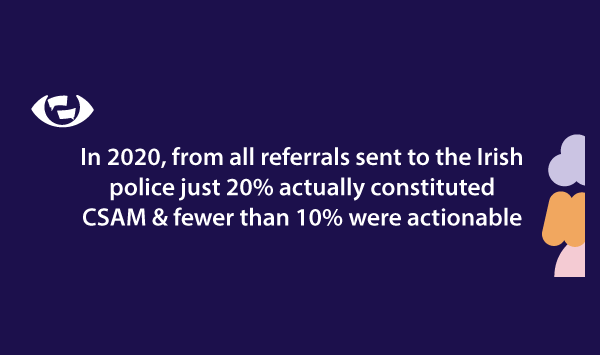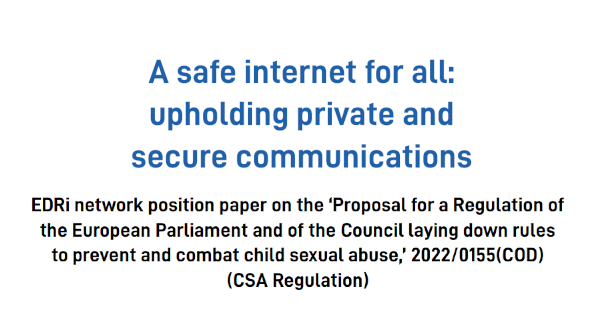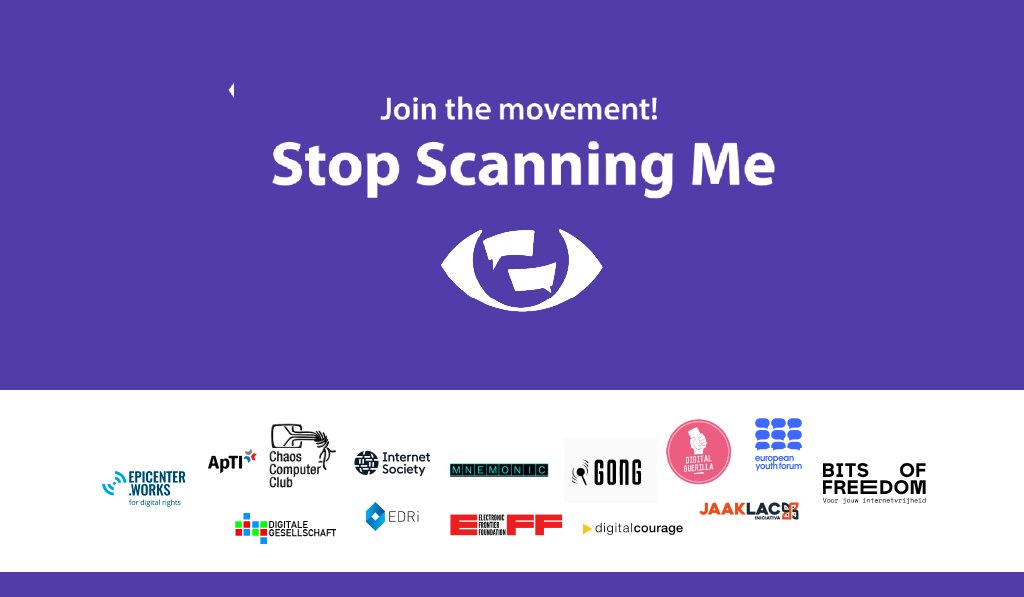
🇨🇮 Breaking news from Ireland: @ICCLtweet latest investigation shows no one can be protected by making the internet less secure.
Data supports EDRi’s new position paper, denouncing #CSAR proposal as having naïve faith in tech as a silver bullet.
edri.org/our-work/break…
Data supports EDRi’s new position paper, denouncing #CSAR proposal as having naïve faith in tech as a silver bullet.
edri.org/our-work/break…

2/ In 2020, from all referrals of #CSAM the US NCMEC sent to the Irish police ⚠️ just 20% were actually CSAM & less than 10% were actionable. Nevertheless, the Irish police❗️kept the data on people wrongfully accused.
Check the evidence: edri.org/our-work/break…
#StopScanningMe
Check the evidence: edri.org/our-work/break…
#StopScanningMe

3/ The proposed #CSAR is a fishing exercise. It'd treat all internet users in the EU as potential child sexual abuse perpetrators. Guilty until proven otherwise.🤷♀️
➡️EDRi publishes today its #CSAM position: edri.org/our-work/a-saf…
#StopScanningMe #ChatControl 👏@ellajakubowska1
➡️EDRi publishes today its #CSAM position: edri.org/our-work/a-saf…
#StopScanningMe #ChatControl 👏@ellajakubowska1

4/ EDRi recommends focusing on:
🔹education
🔹awareness-raising & empowerment of survivors
🔹social & structural change
🔹reforming the police
🔹investing in child protection services
🔹connect child & digital rights groups to work together
More: edri.org/our-work/a-saf…
🔹education
🔹awareness-raising & empowerment of survivors
🔹social & structural change
🔹reforming the police
🔹investing in child protection services
🔹connect child & digital rights groups to work together
More: edri.org/our-work/a-saf…
5/ CSA survivor & privacy advocate Alexander Hanff @BadPublishers explains that intrusive internet monitoring:
👁️deprives survivors of safe spaces
🛑disincentivises survivors from seeking help
There is no quick fix BUT we can stop child sexual abuse if we work TOGETHER.🔥
👁️deprives survivors of safe spaces
🛑disincentivises survivors from seeking help
There is no quick fix BUT we can stop child sexual abuse if we work TOGETHER.🔥
6/ Join @edri & 12 orgs in our #StopScanningMe movement: stopscanningme.eu 💪
We'll fight for achievable, lawful alternatives to intrusive mass surveillance. We'll fight for real solutions.
@Europarl_EN & @EUCouncil must REJECT the badly-written #CSAR!
#ChatControl
We'll fight for achievable, lawful alternatives to intrusive mass surveillance. We'll fight for real solutions.
@Europarl_EN & @EUCouncil must REJECT the badly-written #CSAR!
#ChatControl

• • •
Missing some Tweet in this thread? You can try to
force a refresh












